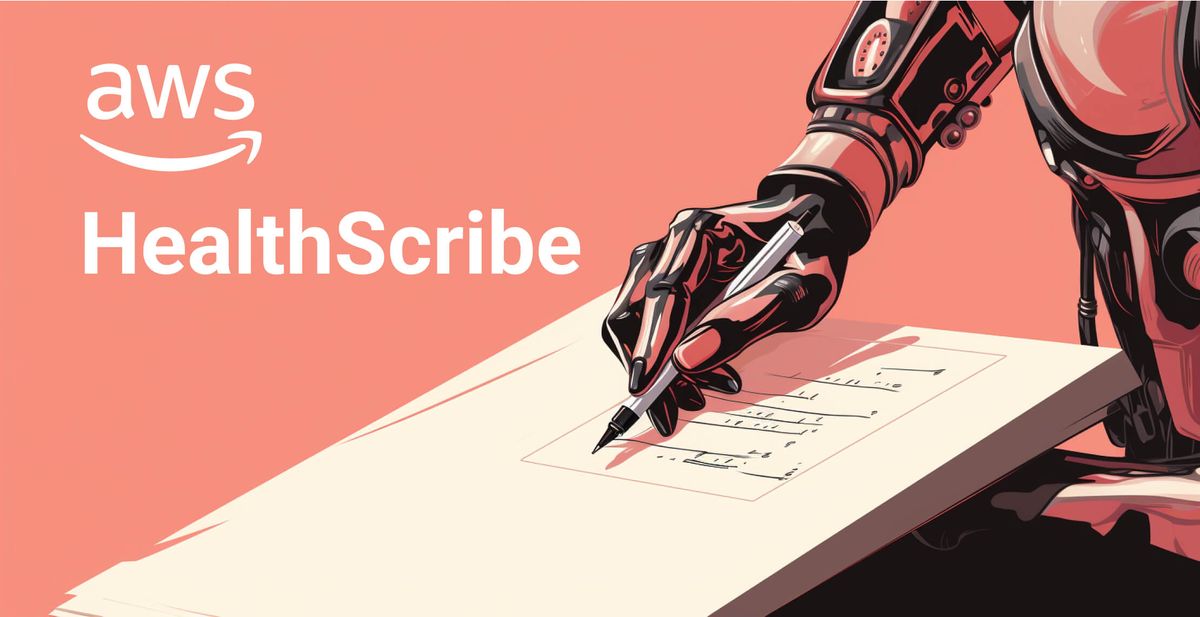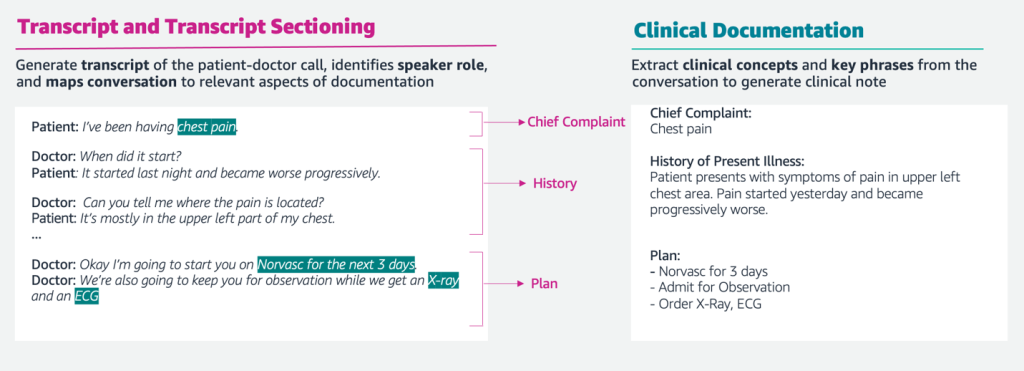
Clinical documentation requirements have long been a pain point for clinicians and patients alike. The administrative burden takes clinicians away from quality face time with patients while patients receive less personalized attention. Though medical scribes have provided some relief, they are costly and face burnout performing repetitive documentation tasks.
Today, Amazon Web Services (AWS) announced the launch of AWS HealthScribe, a HIPAA-eligible service that leverages advances in conversational and generative AI to help automate clinical documentation. Designed to integrate directly into healthcare applications, AWS HealthScribe analyzes patient-clinician conversations to generate rich transcripts and preliminary clinical notes.
Despite the transformative potential of AI, the integration of AI into clinical applications is fraught with challenges, including the complexity of implementation, security and compliance requirements, and trust issues. AWS HealthScribe addresses these challenges head-on with a solution that is both user-friendly and secure.
AWS HealthScribe produces comprehensive transcripts from audio recordings of patient visits. The service identifies speaker roles, classifies dialog into categories based on clinical relevance, like “small talk”, “subjective comments” or “objective comments”, and extracts key medical terms.
These automatically generated transcripts reduce the need for manual note-taking while still capturing important visit details. The transcripts empower clinicians to quickly validate and finalize their notes.
AWS HealthScribe combines multiple AI capabilities into one service. This streamlines integration compared to utilizing individual AI components. In addition to transcripts, AWS HealthScribe analyzes the conversation to produce preliminary summaries for clinical note sections such as chief complaint, diagnosis, and treatment plan.
The AI-powered note generation acts as a first draft that clinicians can efficiently review and finalize. This saves significant time compared to manual documentation. However, a key concern with AI assistance is trust in accuracy. To address this, AWS HealthScribe links every generated sentence back to the original transcript. Users can easily validate summaries against the complete conversation.

Importantly, AWS also stated they will not use customer data to train or improve the HealthScribe service. This prioritizes privacy and security for protected health information.
Healthcare software vendors like 3M, Babylon, and ScribeEMR are already integrating AWS HealthScribe into their clinical applications. The unified service will accelerate development of AI-powered documentation features.
"With AWS HealthScribe, our advanced processes can now capture and interpret patient visits more effectively and optimize EMR workflows, coding, and reimbursement processes. This breakthrough represents our relentless pursuit of improving efficiency, profitability, and most importantly, patient care." - Daya Shankar, co-founder of ScribeEMR
Ultimately, automating tedious administrative work allows clinicians to focus on delivering personalized, attentive care during appointments. Patients benefit from more quality time and engagement with their healthcare provider. AWS HealthScribe shows the potential of AI to not just improve clinician workflow, but to transform the doctor-patient relationship for the better.

